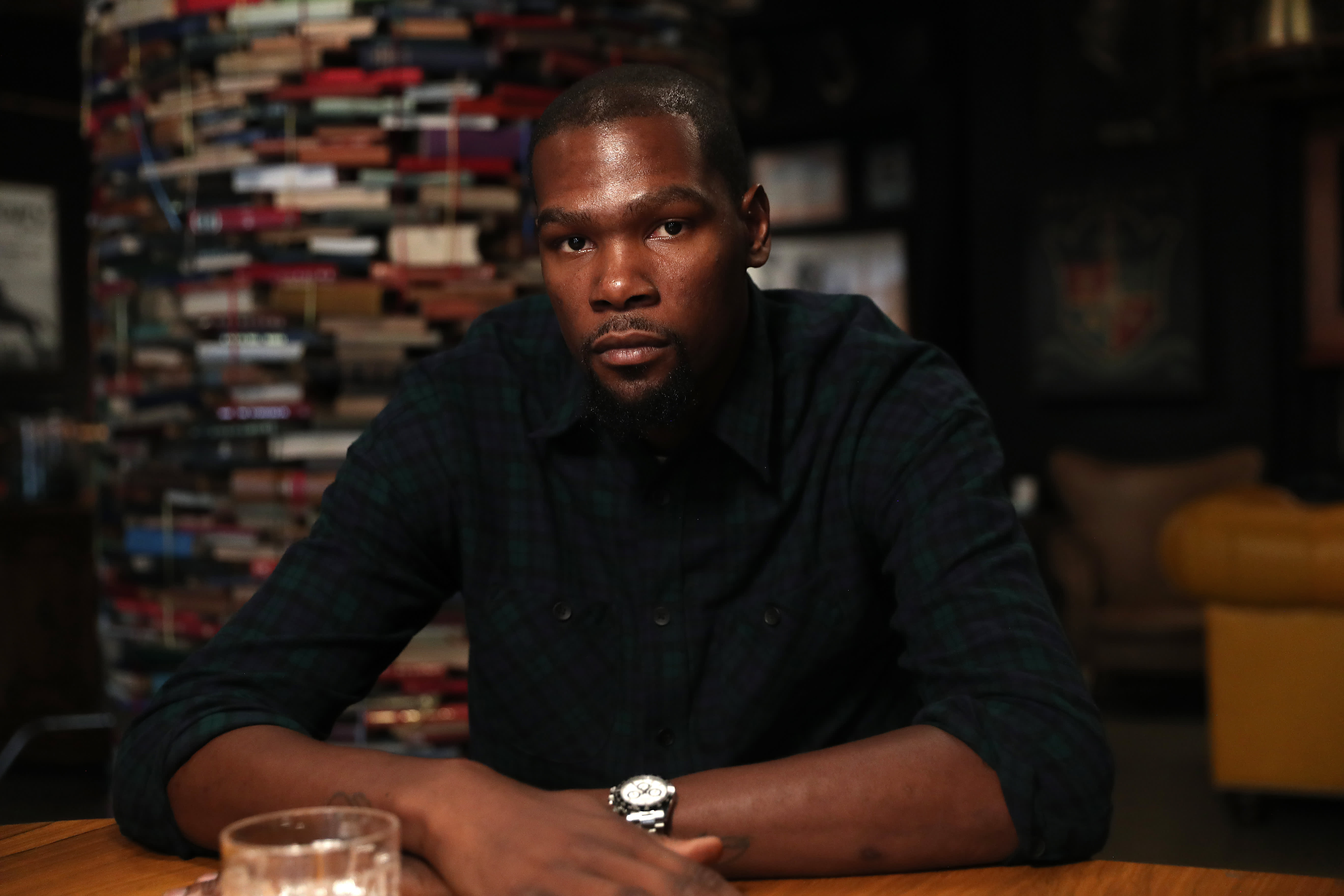
Goalsetter app
Source: Goalsetter
Start-up financial tech company Goalsetter has raised $3.9 million in a seed round that includes top National Basketball Association stars and the billionaire chairman of investment firm Vista Equity Partners, Robert F. Smith.
The company said the funds would be used to expand its mobile application platform and accelerate subscriber growth. The Brooklyn Nets’ Kevin Durant and Phoenix Suns guard Chris Paul are investors. Joining them is former NBA player Baron Davis, ex-New York Yankees pitcher C.C. Sabathia.
PNC Bank, Mastercard, and Elevate Capital, a fund that invests in women and entrepreneurs of color, are also investors.
In an interview with CNBC on Friday, Tanya Van Court, founder and CEO of Goalsetter, said the firm has other corporate partnerships that will be revealed this year. She added that the firm will announce a unique initiative to help promote the app near February’s Black History Month.
Goalsetter is a mobile banking app that allows peer-to-peer transactions. Users can also put funds on banking cards for purchases. Van Court, a former Nickelodeon executive, said the Goalsetter’s uniqueness centers around financial literacy, especially among Black youth.
Earning and learning
Tanya Van Court, CEO of Goalsetter.
Source: Goalsetter
Van Court pointed to a 2017 stat by Progressive Now, a nonprofit think tank group that studies economic opportunities for low-income areas, that found 70% of “Black and Latino households could fall below the $68,000 threshold needed for middle-class status,” compared with roughly 40% of White households.
The report said if the wealth divide continues, the “median Black household wealth is on a path to hit zero by 2053,” while the median Latino household could be zero by 2073.
Van Court says the app can help combat wealth inequality with savings tools and by promoting “delayed gratification” by helping families reach financial goal and limit spending.
One of Goalsetter’s features is “learn before you burn,” which allows parents to lock debit cards until their children complete weekly financial literacy quizzes.
“So, if you activate this tool, your kids’ debit card will automatically freeze on Sunday mornings if they haven’t taken their financial literacy quiz for the week,” Van Court said. “And it will unfreeze once that kid takes their financial literacy quiz.”
For younger users, the “learn to earn” feature enables parents to place money in accounts for allowance and rewards for correct quiz answers on their financial tests.
With her background leading NickJr.com, Van Court developed the quizzes for children and teenagers incorporating cultural and kid-friendly content with financial education.
“We use humor, lyrics, personalities that kids can relate to, hip-hop, and culture to explain key financial literacy concepts,” Van Court said. “We are seeing that this resonates with kids.”
She praised the athletes for investing in Goalsetter and supporting a Black-owned firm.
“It means so much that they are putting money behind a Black woman-owned company when we all know Black women-owned companies have been the last on the totem pole of venture capitalists,” Van Court said.
“It’s larger than just a check,” she added. “They are investing in the next generation of kids to make sure they learn financial education. To make sure they learn how to save early and develop savings habits. But they also are investing in the fabric of ownership in Black America.”
Making money
Goalsetter will also use a business-to-consumer model and rely on sponsorship revenue in an effort to create a profit. Transactional fees will make up a portion of income, and users can also donate with a “pay what you think is fair” system.
“We know we’re as attractive to kids of Morgan Stanley employees as we are to kids of McDonald’s employees,” Van Court said. “We believe that everyone on the spectrum will sign up for Goalsetter.
“Those who can afford to pay will pay for themselves and their kids. And the truth of the matter is, they’ll probably pay a bit more and subsidize those families who can’t afford to pay. And those who can’t afford it will still be on Goalsetter.”
She said banks are also in discussions for “white-labeling” agreements with Goalsetter. The model calls for the company to sell a portion of its software to companies that then rebrand it around their app.
“The beauty of Goalsetter is, we are not just good for Black and Brown kids,” Van Court said. “We’re good for all kids, and we have lots of kids from lots of different ethnic backgrounds on our platform.”




